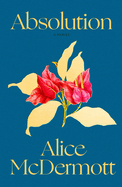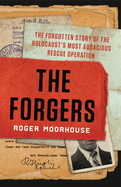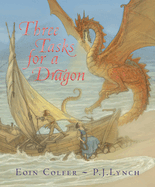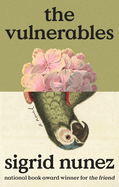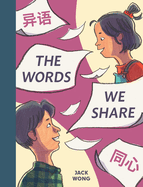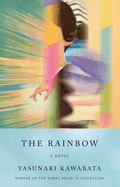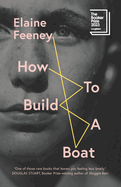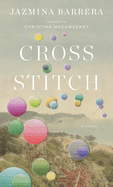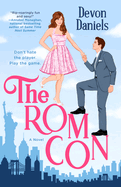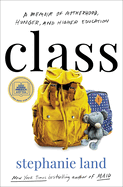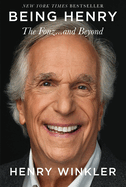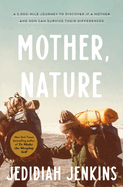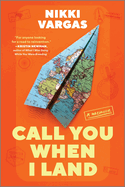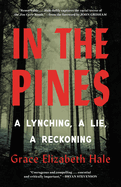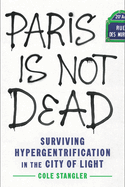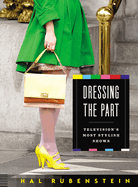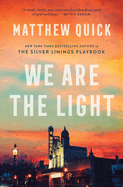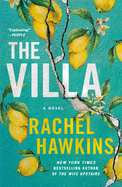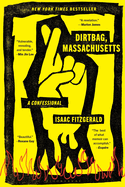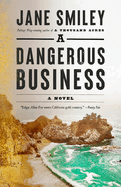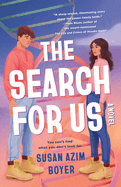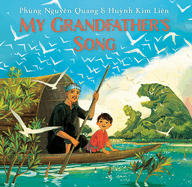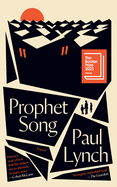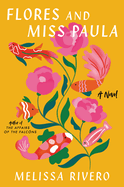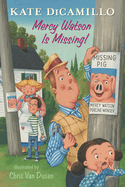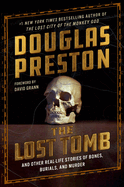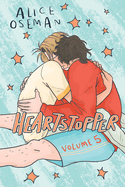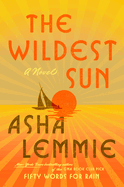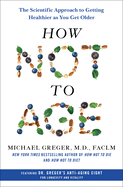Friday, November 10, 2023
Among the stellar fiction reviewed this week: Alice McDermott's "smart and memorable" novel Absolution, which explores the question of whether help is consequential, or merely the feel-good actions of the well-meaning but misguided; deftly integrated into a familiar narrative of discordant strangers bonding, The Vulnerables by Sigrid Nunez is a "penetrating interrogation" of the nature of reading, writing, and creating fiction; and in the "breathtaking" middle-grade adventure Three Tasks for a Dragon by Eoin Colfer, illustrated by P.J. Lynch, young Prince Lir must choose between banishment and a dangerous quest. Plus so many more!
In The Writer's Life, Girlfriends author Emily Zhou talks about the writers that influenced not only the way she thinks about writing, but also where to live.
Absolution
by Alice McDermott
The question of whether help is consequential, or merely the feel-good actions of the well-meaning but misguided is at the heart of Absolution, a quietly provocative novel by Alice McDermott (What About the Baby?; The Ninth Hour; Someone). Most of this book is a long missive that a now-elderly American woman named Patricia writes to a younger woman named Rainey about their time in Saigon in 1962 and 1963, when Rainey was a little girl. Back then, Patricia was a 23-year-old from Yonkers, N.Y., recently married, who acts as a "helpmeet" to her husband, Peter, "a young engineer on loan to the navy." At a party, she meets Charlene, Rainey's mother and the wife of an oil company executive. Charlene recruits Patricia in a series of schemes intended to bring cheer to the Vietnamese. One involves selling Saigon Barbies, Barbie dolls for which Charlene's housekeeper makes doll-sized áo dàis, the colorful national costume of Vietnam.
That's one of the many memories Patricia shares with Rainey, who has sought out Patricia to learn more about that era, and to find out what Patricia remembers about Dominic, a young soldier they both knew. The issue of which gestures constitute consequential support is only one of the many themes McDermott explores. Others include clashes between Catholics and Protestants, and the subservient roles women of the 1960s were expected to play. As one character puts it, "self-sacrifice is never really selfless. It's often quite selfish." The veracity of that statement receives enlightening examination in this smart and memorable work. --Michael Magras, freelance book reviewer
Discover: Alice McDermott's quietly provocative Absolution, which explores the nature of altruism, presents an exchange of correspondence between two American women about their time in 1960s-era Vietnam.
The Vulnerables
by Sigrid Nunez
The Vulnerables is not Sigrid Nunez's first pandemic fiction; she published the prescient Salvation City in 2010, spotlighting a global flu outbreak. This time, Nunez turns her lens inward, focusing on a writer past her mid-60s, contemplating existence with still-close college friends who have briefly reunited just in time for the funeral of one of their own. In hindsight, the gathering would be "the last time any of us would be traveling anywhere--for more than a year," as the lockdown begins.
Upon returning to Manhattan, the unnamed writer/narrator is asked to be companion and caretaker to Eureka, a highly intelligent and sociable macaw, when the owners become stranded in California as Covid-19 quickly spreads. The request speaks to the writer's childhood aspiration to work with animals. She easily connects with Eureka and settles into a comfortable routine. All goes well until Eureka's originally assigned birdsitter--a troubled young man fleeing his unaccepting parents--returns unexpectedly. With the writer's own apartment now occupied by a friend's sister, the writer struggles to readjust to the latest changes, particularly in overcoming her disdain for this often thoughtless new roommate.
Deftly integrated into a familiar narrative of discordant strangers bonding, The Vulnerables is a penetrating interrogation of the nature of reading, writing, creating fiction--especially in a time of widespread peril: "images of harrowed health care workers made it hard to see inventing stories about made-up people as a heroic profession." Grateful readers can only hope that Nunez (The Friend) will continue her essential work of "making it up" for volumes to come. --Terry Hong
Discover: National Book Award-winner Sigrid Nunez presents a spare, remarkable novel featuring an unnamed narrator contemplating the nature of writing fiction amid the Covid-19 pandemic.
The Rainbow
by Yasunari Kawabata, transl. by Haydn Trowell
Rainbows are beautiful, but they don't stick around for long. This concept of impermanence is at the heart of The Rainbow, a 1951 novel by Japanese Nobel Prize laureate Yasunari Kawabata (Dandelions). Translated by Haydn Trowell, it's available in an English translation for the first time. The story, set shortly after World War II, is one of two stepsisters born to the same father. Asako, the younger sibling, has recently traveled to Kyōto from Tokyo after having learned of a third stepsister. Momoko, the elder, dates lots of men, partly out of grief over her lover who died in the war. Their father, Mizuhara, is an architect who remodels former nobles' homes that have been turned into inns and restaurants, a change that has prompted him to doubt whether modern architecture "would endure as a testament to beauty." He also wonders: Are "the fates of architects... now at the mercy of the destructive power of the atomic bomb?"
Kawabata evokes the trauma of a Japan still reeling from the war and left to ponder the transitory nature of existence and the country's standing in the world. On a train ride, Asako sees a rare winter rainbow above a lake "as though it were floating in midair." That's one of many fleeting treasures--the relatively trivial rainbows and cherry blossoms as well as the more life-and-death moments--that Kawabata contemplates in this melancholy work. The prose and some of the attitudes are old-fashioned, but the cry for healing and tolerance is as timely as ever. --Michael Magras, freelance book reviewer
Discover: The Rainbow--a 1951 novel by Yasunari Kawabata, published in English for the first time--is the story of two stepsisters dealing with family conflicts and the lingering devastation of postwar Japan.
How to Build a Boat
by Elaine Feeney
Elaine Feeney's second novel, How to Build a Boat, is a study in contrasts. Simultaneously quiet and riotous and equal parts light and darkness, the Booker Prize longlisted novel focuses on Jamie, starting his first year at an all-boys secondary school in West Ireland. Jamie displays many traits of neurodiversity, such as hyperfixation, pattern recognition, and sensory dysregulation, but Feeney (As You Were) applies no diagnostic label; instead, she has Jamie speak for himself, and his voice--the driving force behind this novel--is spot on. Jamie loves maths, the lectures of Field Medal-winner Maryam Mirzakhani, and the color red. He speaks plainly about his mother Noelle's death at his birth, though the fact of it doesn't change his desire to build a perpetual motion machine, one that relies on no energy inputs, one that might connect him to Noelle.
On the other side of the narrative are Tess Mahon and Tadhg Foley, both teachers at the school Jamie is set to attend. Tess has just learned her Additional Needs students have all been transferred out of Christ's College. Tadhg is the new woodwork teacher, and the source of the project that gives this book its title. Tess and Tadhg offer Jamie extra support, seeing him for the brilliant but needful young person that he is. Read one way, this is a story about a team of loving adults surrounding a student in need; read another way, however, How to Build a Boat takes on greater dimension, and readers will share in the glow that comes when Jamie and his boat project become the source of an unexpected and undeniably beautiful community. --Sara Beth West, freelance reviewer and librarian
Discover: Elaine Feeney's second novel is a brilliant coming-of-age story, focusing on neurodiverse Jamie and the teachers who support him as he navigates his first year at a religious school in West Ireland.
Cross-Stitch
by Jazmina Barrera, transl. by Christina MacSweeney
In Cross-Stitch, the inventive first novel by Mexican author Jazmina Barrera (On Lighthouses), a sudden death provokes an intricate examination of three young women's years of shifting friendship. Their shared hobby of embroidery occasions a history of women's handiwork, woven into a relationship study that may remind readers of works by Elena Ferrante and Deborah Levy.
Mila, a Mexico City writer with a young daughter, is blindsided by the news that her friend Citlali has drowned in Senegal. Citlali, who worked for an environmental NGO, struggled with mental illness. New antidepressants slowed her reaction times when she went swimming, so whether her death was accidental or a suicide is unclear.
Mila, Citlali, and Dalia had been best friends since middle school. While waiting to be reunited with Dalia for Citlali's memorial service, Mila browses a journal she kept during their travels in Europe and to a Mexican village to remember key moments from their friendship. They all volunteered one summer in high school, for an adult literacy campaign in Yospí. Later, at age 19, Dalia and Mila visited Citlali, who had moved to France instead of attending college. Before meeting Citlali in Paris, the pair packed in lots of London sightseeing.
Like a scrapbook or commonplace book, the novel--elegantly translated from the Spanish by Christina MacSweeney--pieces together Mila's memories with references to the history of the textile arts. Barrera builds a rich collage of vignettes about art, etymology, and legends that illuminate the womanly traditions of handicraft. A feminist, intertextual gem, Cross-Stitch considers friendship and grief alongside women's work, musing on its serious themes with nimble grace. --Rebecca Foster, freelance reviewer, proofreader, and blogger at Bookish Beck
Discover: Jazmina Barrera's first novel is an intricate portrait of the friendship among three Mexican women over time, with themes of bereavement, environmentalism, and handicraft.
Romance
The Rom Con
by Devon Daniels
The Rom Con by Devon Daniels (Meet You in the Middle) is the charming story of Cassidy Sutton, an editor and writer for a feminist web magazine, and Jack Bradford, co-owner and -founder of a rival men's website. When Cassidy dumps the man she's been seeing, she receives some interesting advice from her 90-year-old grandmother: date like it's the 1950s. Reluctantly, and only because of her love for her grandmother, she decides to try it--and write about it for work. When she learns Jack's identity after a meet-cute at a press event, her story becomes about more than dated courtship rituals as she begins to date him for her article.
Told in the first person, the romance between Cassidy and Jack is sweet and genuine, despite beginning in a lie. Jack is the quintessential male lead--sensitive, adoring, handsome, and rich. Cassidy is funny and knows herself, which is what initially draws Jack to her. The spice is there, but it's not the main point of the novel. The relationships among the side characters are well-developed and add depth to the story without detracting from the romantic plot.
Tropes include fake dating, workplace romance, enemies-to-lovers, and slow burn--all with a happily-ever-after ending. The Rom Con is perfect for readers who enjoy classic romantic comedies and draws inspiration, as noted in the story itself, from the movie How to Lose a Guy in 10 Days. -- Alyssa Parssinen, freelance reviewer and former bookseller
Discover: Both modern and classic, The Rom Con is a joy to read for lovers of the genre.
Food & Wine
Polish'd: Modern Vegetarian Cooking from Global Poland
by Michal Korkosz
Polish'd: Modern Vegetarian Cooking from Global Poland by Michal Korkosz (Fresh from Poland), a compendium of vegetable-centric culinary and visual delights, presents 100 new recipes, full-page photographs, and bright graphics sure to entice home cooks. Polish cuisine is a "patchwork of regional recipes," thanks to a melting pot of immigrant cultures. Poland, Korkosz writes, was once a "mosaic of nations" with diverse culinary influences, including Turkish, Jewish, and Italian. Though Polish food is stereotypically meat-heavy, Warsaw is "one of the most vegan-friendly cities in the world." Korkosz notes the Poles' awareness of animal rights, climate change, and healthy fare.
Creatively arranged by 12 "cooking methods," including raw, steamed, smashed and blended, and deep-fried, these 100 recipes feature unexpected ingredients. Korkosz incorporates Japanese miso and Middle Eastern tahini into these recipes as easily as he does Polish farmer cheese and beets. As the creator of the Polish food blog Rozkoszny (which means "delightful"), Korkosz urges readers: "Liberate yourself with creativity," modeling his philosophy that cooking "is a playground." Each two-page recipe presentation includes anecdotes, tips, mouth-watering photos (note the iconic Polish ceramics) and intriguing names, such as "All the Leaves with vinaigrette, blackberries, and so many herbs" and "Salted Szarlotka (Apple Pie) with no-churn brown butter ice cream." The international flavors of Korkosz's recipes never slight his unabashed love of his homeland. He notes seasonal and traditional ingredients (mushrooms, potatoes, the famous Wieliczka and Kłodawa salts). And the two pierogi recipes will delight cooks hungry for iconic Polish fare. --Cheryl McKeon, Book House of Stuyvesant Plaza, Albany, N.Y.
Discover: A Polish cookbook presents vegetarian fare that combines traditional recipes with flavors from the global cuisine that reflects modern Poland.
Biography & Memoir
Class: A Memoir of Motherhood, Hunger, and Higher Education
by Stephanie Land
In Class, Stephanie Land offers a moving rumination on higher education, work, and motherhood--and how the experiences of each, and the striving for each, sit within the classist systems of the United States and its social safety net.
Land (Maid: Hard Work, Low Pay, and a Mother's Will to Survive) examines her continued experiences of poverty and motherhood as she strives to earn her bachelor's degree and pursue work as a writer. She breaks down the constant judgment heaped upon her--and others--for daring to dream of a life beyond that of the "deserving poor," constantly proving her worthiness and value as a mother and as an individual via her dedication to work. Her experience navigating the complex, demoralizing systems of higher education and social safety net programs led her to the "sense that not only did work have the greatest value, but I, too, only had value if I was working." She equates her pursuit of higher education and dream of being a writer to the purchase of a "fresh-off-the-lot, overpriced car" that is "extravagant to the point of absurdity."
Who gets to write? Who gets to make art? Who gets to strive for a different way of being, living, doing, and who is expected to be grateful for whatever bits come their way? These questions form the crux of this incredible and heart-wrenching memoir. Class is as infuriating as it is inspiring, and it is essential reading for anyone with even a passing interest in narratives of wealth and work, the lived experience of prejudicial U.S. safety net systems, or social justice. --Kerry McHugh, freelance writer
Discover: The author of Maid returns with an incredible and heart-wrenching memoir that ruminates on higher education, class, and single motherhood.
Being Henry: The Fonz... and Beyond
by Henry Winkler
This may surprise readers who love classic TV: in real life, Henry Winkler, who played Casanova greaser Arthur Fonzarelli in the 1950s-set sitcom Happy Days, could pass for a Woody Allen character. In the surpassingly honest and equally charming Being Henry: The Fonz… and Beyond, written with James Kaplan, Winkler presents himself as a chronic worrier and a hive of negative thinking. Despite this--or because of it--readers couldn't ask for a more entertaining guide through the life of a working actor.
Born in 1945, Winkler grew up privileged in Manhattan, the son of refugees from Nazi Germany. An undiagnosed dyslexic, he did wretchedly in school but excelled at acting, eventually graduating from the Yale School of Drama. In 1973, he scored the role of Fonzie, who became an international phenomenon; Winkler played him until Happy Days ended in 1984. The second half of the memoir chronicles Winkler's post-Fonzie life, much of it spent, thanks to typecasting, in "the Valley of Career Death." After several rocky decades, Winkler ended up with a 2018 Emmy for his supporting work in the HBO comedy Barry.
Winkler writes sheepishly of how his chatterbox ways have occasionally hurt him professionally, but his loquaciousness sure serves his book. (It also served him as coauthor of the successful Hank Zipzer middle-grade series, about a kid with dyslexia.) Being Henry is full of endearing asides ("Is this making you sad? Me too!"), and even Winkler's accounts of his most shattering career disappointments are offset by his abiding warmth--not to be mistaken for optimism. --Nell Beram, author and freelance writer
Discover: The beloved Happy Days and Barry actor's warmth and loquaciousness are part of what make him a supremely entertaining guide through the life of a working actor.
Mother, Nature: A 5,000-Mile Journey to Discover if a Mother and Son Can Survive Their Differences
by Jedidiah Jenkins
In the contemplative Mother, Nature, Jedidiah Jenkins (Like Streams to the Ocean) presents both a literal and psychological voyage--and an investigation into family and tolerance.
Jenkins, nearing his 40th year, is troubled by his relationship with his mother: loving but fractured by her inability to accept his identity as a gay man. In November 2021, he undertakes a trip with her that he hopes will help them address their disagreements. The same journey will allow reconsideration of an aspect of her life that Jenkins paid little attention to. In the 1970s, his parents, Peter and Barbara Jenkins, walked across the United States, as famously documented in a series of books (A Walk Across America; The Walk West) and National Geographic articles. As mother and son retrace those steps by car, Jedidiah Jenkins wishes to learn more about his mother and her worldview; see the countryside and strengthen their relationship; and perhaps, finally, bring her to terms with his identity.
Jenkins's prose is unadorned, but his reflections are elemental ones about family and the static and changing aspects of relationships: "a mother's influence is difficult to excise. It is not like the scorching sun. You cannot shade yourself from it. It is more enveloping and inescapable, like the air you need to survive." By the memoir's end, much is unresolved about the lives still in motion, but Jenkins has found his own peace, and learned a bit about the landscapes of his home country and his family background. Mother, Nature, a loving ode, suggests that the questions will continue to present themselves and that the journey toward discovery is worthwhile. --Julia Kastner, librarian and blogger at pagesofjulia
Discover: A loving but troubled mother-son relationship takes center stage during a great American road trip in this reflective memoir about family.
Call You When I Land
by Nikki Vargas
Colombian American Nikki Vargas (Wanderess) had parlayed her lifelong passion for travel into a successful blog. But she knew something was wrong when she found herself fleeing solo to Argentina and Iguazú Falls just weeks before her scheduled wedding. Vargas's frank, engaging memoir, Call You When I Land, charts her love of travel and the ways it has helped (and occasionally hindered) her in her journey of self-discovery. The child of Colombian immigrants, Vargas had an urge to go from a young age, helped along by her dad's passion for airplanes. She recounts her childhood trips, the months she spent in France living with a boyfriend, and her eventual launch of a travel blog, the Pin the Map Project. The blog allowed Vargas to hone her writing skills, connect with readers who shared her love of travel, and even hop on a few all-expenses-paid press trips. Eventually, though, she decided to take a larger leap by founding a feminist travel magazine, Unearth Women.
Vargas weaves vivid descriptions of her travels in with her personal and professional journeys, sometimes emphasizing relationship dramas or her own cluelessness as a 20-something trying to make it in New York. Readers may wonder at some of her decisions, but travel and writing, Vargas's twin guiding lights, always reemerge to steer her in a different direction. Though some of Vargas's leaps (travel-related and otherwise) end in spectacular crashes, she keeps telling her story with resilience, hope, and an eye for the next exciting destination. --Katie Noah Gibson, blogger at Cakes, Tea and Dreams
Discover: Travel journalist Nikki Vargas recounts her journeys--worldwide, personal, and professional--in a frank and engaging memoir.
History
The Forgers: The Forgotten Story of the Holocaust's Most Audacious Rescue Operation
by Roger Moorhouse
In The Forgers, perfect for history buffs, historian Roger Moorhouse (Poland 1939; Berlin at War) tells in riveting detail the story of a group of Polish diplomats in Bern, Switzerland, who provided forged travel documents to more than 10,000 people between the years 1940 and 1943. Led by Aleksander Ładoś, they worked in secrecy and, subsequently, history nearly forgot them. As early as 1940, the Polish embassy secured the safety of Polish Jews by providing false documents, something that accelerated with the increasing barbarity of the Nazi occupation of Poland. Moorhouse provides fascinating details of how those involved made and processed the requests, as well as stories of some individuals whose lives were saved by the documents provided by the Ładoś Group. Oftentimes, the circuitous route from request to recipient was such that the person receiving the document never knew where it had come from.
Many of the documents produced were Latin American passports from countries such as Paraguay, Honduras, and Peru. Cooperation from those countries and sometimes even other diplomats presented challenges, as seen in this comment from an official working in the U.S. State Department in Switzerland: "This group of persons has obtained false papers to which they have no claim and has endeavoured to obtain special treatment.... We are being placed in the position of acting as nurse-maid to persons who have no claim to our protections." The Forgers is a wonderful complement to the history of diplomacy and heroism during the Holocaust--one that's been relatively unknown until now. --Elizabeth DeNoma, executive editor, DeNoma Literary Services, Seattle, Wash.
Discover: The Forgers is the enthralling history of the heroics employed by Polish diplomat Aleksander Ładoś and his colleagues to provide forged travel documents to Jewish people fleeing Nazi terror.
In the Pines: A Lynching, a Lie, a Reckoning
by Grace Elizabeth Hale
In the Pines: A Lynching, a Lie, a Reckoning is a story with personal significance for Grace Elizabeth Hale (Making Whiteness), who tackles some of the greatest race-relations demons--historical and continuing--in the United States. In this thoroughly researched account, Hale investigates the 1947 murder of a man named Versie Johnson in rural Jefferson Davis County, Miss. The author's beloved grandfather served as sheriff at the time, and her mother originally offered this tale as one of righteous heroism: her white grandfather stood up to a mob and refused to release his Black prisoner, who was somehow nevertheless removed to the woods where he died. But Hale learns that her grandfather's involvement was neither innocent nor heroic.
In her thoughtful narrative, Hale places the death of Versie Johnson in layers of context. She works to find personal information about Johnson, with limited results: one theme of her book is the lack of recorded facts about people judged inconsequential by the record-keepers. A historian of American culture, Hale began to do research for this book as she finished a doctoral dissertation on southern segregation, Jim Crow, lynching, and white supremacy. In the Pines is elevated by lovely writing: "Family trees are metaphors. They share with pines both a basic structure and a tendency to flourish only when conditions are right." It is also marked by incisive thinking about race in history and in the present. Hale's work is a significant contribution to that larger conversation. --Julia Kastner, librarian and blogger at pagesofjulia
Discover: A historian with personal connections to its players expertly researches a specific lynching case in this razor-sharp report.
Social Science
Paris Is Not Dead: Surviving Hypergentrification in the City of Light
by Cole Stangler
Like many of the world's great cities, Paris--especially its best-known, iconic neighborhoods--is gentrifying at an astonishing pace, with developers and wealthy investors threatening to destroy the very character they want to enjoy. Marseille-based journalist Cole Stangler's insightful first book, Paris Is Not Dead, dives into the past, present, and future of French housing policy, working-class protests in Paris, and the (shrinking) opportunities for people of all economic strata to build lives in the City of Light.
Stangler focuses his present-day narrative on northeast Paris, whose working-class arrondissements currently are buzzing with immigrants, many of them from the Maghreb and the Middle East. Despite challenges, including long commutes, racism, and a housing shortage, many of these residents are proud to live where they do and want to stay in their communities. Stangler then gives a brief French history lesson, highlighting several seminal uprisings (including the French Revolution of 1789 and the June Rebellion in 1832) and exploring their connections to housing concerns in Paris. He touches on the banlieue (the suburbs) and the geographical constraints of Paris proper; the "museumification" of formerly lively, diverse central neighborhoods such as the Marais; and the vibrancy Paris stands to lose if its policies continue to allow developers and wealthy foreign buyers to dominate the housing market. Insightful and well-researched yet thoroughly accessible, Stangler's book will prove fascinating to urban-planning geeks, Paris aficionados, and anyone invested in the future health of dynamic, walkable, and diverse global cities. --Katie Noah Gibson, blogger at Cakes, Tea and Dreams
Discover: France-based journalist Cole Stangler explores the gentrification of Paris and its history of housing-related protests, calling for policy solutions to encourage diversity and vibrancy in the city.
Performing Arts
Dressing the Part: Television's Most Stylish Shows
by Hal Rubenstein
With Hal Rubenstein's Dressing the Part: Television's Most Stylish Shows, readers finally have a book that tells them not only what to wear but also what to watch, if occasionally with the sound off.
Rubenstein (The Looks of Love; 100 Unforgettable Dresses) is no fan of the show Girls, but he can't deny its sartorial impact, nor that of the 49 other series he writes about here. The usual suspects are present (Sex and the City, Bridgerton), but so are some wild cards (Soul Train, The Golden Girls). Each selection is bundled into one of eight themed chapters: period dramas, crime shows, reality TV, and so on. For many series, Rubenstein finds or solicits insights from the original costumers, some of whom he interviews in sidebars effortlessly integrated into the book's sumptuous, photo-rich layouts.
Rubenstein manages to be a no-nonsense connoisseur of style without taking his mission too seriously. (He suggests that while bingeing the final season of The Mary Tyler Moore Show, readers should drink a shot "every time you spot Mary's striking open square metal brooch prior to its appearance on her lapel in the final episode.") Rubenstein is also a keen-eyed decoder of looks, reading a message to female viewers in sequins-and-feathers-favoring designer Bob Mackie's work on The Carol Burnett Show: "you don't have to be a classic beauty to feel and look like a star." Dressing the Part doesn't presume readers' familiarity with designers, brands, or fashion lingo--just a passion for style. A passion for TV? Unrequired. --Nell Beram, author and freelance writer
Discover: Readers finally have a book that tells them not only what to wear but also what to watch, if occasionally with the sound off.
Now in Paperback
We Are the Light
by Matthew Quick
A high school counselor suffering the aftereffects of severe trauma decides to mentor a troubled teen boy in We Are the Light, an alternately dark, tender and funny novel from Matthew Quick (The Reason You're Alive).
Lucas Goodgame struggles to accept the dissolution of his relationship with his Jungian analyst Karl, who is no longer seeing patients, and begins writing him letters signed "Your most loyal analysand." In his correspondence, Lucas confesses that he also has not been able to return to work since the mass shooting at the Majestic Theater, their small town's indie movie house, in which he witnessed the death of his wife, Darcy; Karl's wife, Leandra; and several other community members at the hands of a former student. During the shooting, Lucas had a vision of the victims as angels, and in his letters to Karl, he confides that "winged Darcy" has visited and spoken with him frequently since her death. Then Lucas finds 18-year-old Eli, whom he previously counseled, camping in his yard. Winged Darcy tells Lucas, "That boy is the way forward" but will say no more. Lucas oversees a senior project that will earn Eli the credits he needs to graduate, and together they conceive an ambitious script for a monster movie that Lucas believes can heal the town's pain.
Quick creates a strong network of supportive, loving male friendships that sustain Lucas. Although a mass shooting underlies the circumstances of the story, Quick never leans into sensationalism but instead focuses on the devastating ripple effect of trauma experienced by the town. Unexpectedly funny moments lift the somber subject matter. Lucas's odyssey through grief toward the reunification of his town and the scattered parts of his mind mirrors Jung's theory that disparate parts of the self can be integrated into a cohesive whole. --Jaclyn Fulwood
Discover: The healing power of art, grief's reality-shattering weight, and the resilience of community come together in a series of achingly honest, unanswered letters in We Are the Light.
The Villa
by Rachel Hawkins
Rachel Hawkins (Reckless Girls; The Wife Upstairs; Rebel Belle) brings two generations of artists to The Villa in a tense dual-timeline thriller set in Orvieto, Italy. In 1974, Mari; her married boyfriend, Pierce; and her stepsister, Lara, join a famous musician and his dealer for a summer of sex, drugs and rock 'n' roll. Pierce is brutally murdered at the villa that summer and, afterward, Mari publishes a tremendously popular horror novel and Lara releases one of the most acclaimed albums of the 1970s. Almost 50 years later, cozy mystery author Emily accepts an invitation from her lifelong best friend, Chess, to six weeks of relaxation and writing at the same picturesque villa. As Emily works to free herself from her long-running series and soon-to-be ex-husband, a nonfiction book about the murder fairly pours out of her. Chess is a much more successful writer of women's self-help books, however, and decades of resentment and competition resurface as trust and truth are tested.
Hawkins plays on gendered power dynamics and the complexities of sisterhood. As Mari writes: "Houses remember." And this Italian villa echoes with infidelity, secrets and toxic love--that of family, friends and lovers. Hawkins excels at foreshadowing, keeping readers just ahead of her true crime-writing heroine. Can Emily uncover and learn from the events of 1974? Or is she destined to repeat them? The Villa is a deliciously gothic mix of music, murder and messy relationships, perfect for readers who appreciate nuanced, morally gray characters and a bit of revenge. --Suzanne Krohn, librarian and freelance reviewer
Discover: Daisy Jones & the Six meets gothic suspense in Rachel Hawkins's The Villa, a dual-timeline thriller set in Orvieto, Italy.
Dirtbag, Massachusetts: A Confessional
by Isaac Fitzgerald
"My parents were married when they had me, just to different people" sets the tone for Isaac Fitzgerald's gritty and humorous memoir about his escape from the town that gives his book its name, Dirtbag, Massachusetts: A Confessional, and his hardscrabble search for his place in the world.
In 10 essays, the author exposes the realities of his childhood while coming to terms with who he is and why he is. Fitzgerald's opinion of the world was fomented early on by his parents' love of literature, their Catholic faith, and an apathetic view of worldly possessions. Whenever they had to move, their book collection took priority over furniture. Fitzgerald's parents met in divinity school and abruptly found themselves with no home and zero support from either set of parents. Bouncing around South Boston, from a teacher's cramped apartment to a homeless shelter and eventually to low-income housing, sounds like a nightmare for a child, but Fitzgerald remembers these residences fondly: "I was poor but cared for... my parents were good to each other and me, nobody told me I was supposed to be miserable."
After he was mugged at gunpoint at age eight, his parents decided city life was no longer a good thing. His father remained in Boston for work, but Fitzgerald and his mother relocated to a small town in North Central Massachusetts, next door to his disapproving grandmother. Rumors of his father's infidelities back in Boston and witnessing his mother's botched attempts at suicide led eighth-grader Isaac to smash a fellow student's nose with a math book. But instead of seeing a typical delinquent, Fitzgerald's teachers saw an intelligent student with a troubled home life. They pushed him toward boarding school, with a full scholarship. His peers were posh; the drugs were generously shared--but more importantly, Fitzgerald's mind was finally allowed to bloom.
Fitzgerald's adventurous life has not been the typical path to self-discovery; perhaps recounting it will encourage others to find their own trail. --Paul Dinh-McCrillis
Discover: In 10 essays, Isaac Fitzgerald exposes the realities of his childhood while coming to terms with who he is and why he is.
A Dangerous Business
by Jane Smiley
She borrowed from King Lear for her Pulitzer Prize-winning A Thousand Acres, and in the chilling A Dangerous Business, Jane Smiley (Perestroika in Paris; Golden Age; Early Warning) invokes Edgar Allan Poe, specifically "The Murders in the Rue Morgue." It's the mid-1850s, and young Kalamazoo native Eliza Ripple is living alone in a Monterey, Calif., boarding house after her husband, Peter, was shot in a bar fight. Eliza starts working at a brothel run by Mrs. Parks, who warns that their line of work is "a dangerous business." Then again, she says, "being a woman is a dangerous business, and don't let anyone tell you otherwise." The gig turns out to be even more menacing than anticipated when some of the women disappear. With the help of her friend Jean MacPherson, who often dresses as a man and tends to women clients at a different brothel, and inspired by M. Dupin, the non-detective who solves the mystery in Poe's "The Murders in the Rue Morgue," Eliza tries to solve the disappearances.
Given the story's grisliness, Smiley's tone throughout is surprisingly breezy, and fans will welcome this entry into her body of work. She does a skillful job of keeping readers guessing with regard to the killer's identity and addressing themes as relevant today as they were then (the scourge of racism, the role of women in society). Upon reading Poe for the first time, Eliza discovers that she likes "the idea that a train of logic could lead to something utterly unexpected." Smiley takes readers on an equally unpredictable ride. --Michael Magras, freelance book reviewer
Discover: Two young women who work in brothels in 1850s California channel Edgar Allan Poe and investigate a series of murders.
Children's & Young Adult
Three Tasks for a Dragon
by Eoin Colfer, illus. by P.J. Lynch
Young Prince Lir must choose between banishment and a dangerous quest in the breathtaking middle-grade adventure Three Tasks for a Dragon by Eoin Colfer (Artemis Fowl series; Illegal), illustrated by P.J. Lynch (The Haunted Lake).
Lir, "an amiable and useful boy," knows he doesn't excel in the usual princely feats. His stepmother, Queen Nimh, agrees: "You cannot ride a horse.... You can barely lift a sword. And you cannot summon the wolfhounds." (Lir thinks the last of these accusations unfair--no one has summoned the wolfhounds for 500 years.) So Lir is not surprised when Queen Nimh names his stepbrother, Delbayne, her heir. He is stunned, though, by her ultimatum to him: rescue the girl Cethlenn from the great dragon Lasvarg's island or face banishment. Lir knows what his late father, "the questor king," would have chosen and does the same, accepting the quest. What Lir doesn't know is that it's all a setup--Lasvarg is an old, tired dragon who was instructed by Delbayne to get rid of Lir: "Do not preserve the questor prince in dragon amber to be eaten later. Kill him."
Colfer takes familiar fairytale themes (family, bravery, questing) and twists them ever so slightly to produce an enchanting and uncommon fantasy about found family and power from unexpected places. Lynch's pencil drawings are digitally colored in muted tones and delicately lined, graceful and elegant like the work of contemporary Chris Riddell. Three Tasks for a Dragon shows quests (and heroes) need not be about physical strength; great heroes can be calm, resourceful, and kind. --Kyla Paterno, freelance reviewer
Discover: A prince must journey to a dragon's island to save a maiden in this breathtaking middle-grade adventure.
The Words We Share
by Jack Wong
Jack Wong follows his 2023 Boston Globe-Horn Book Award-winning debut, When You Can Swim, with another empowering, exquisitely empathic picture book, The Words We Share. Angie and her father are immigrants who arrived in Canada speaking "just a tiny bit of English." Going to school enabled an easier linguistic transition for Angie while her father still speaks only in Cantonese. Angie must often be Dad's interpreter, ordering at restaurants and checking grocery labels "to make sure he doesn't buy pet shampoo by mistake."
Then Dad brings home another task requiring Angie's assistance--to make "special notices around his building" where he's a janitor. Dad dictates in Cantonese; Angie transcribes into English. So successful is their endeavor that Angie starts a signage service for other businesses like Ms. Fong's canteen and Ms. Lim's shoe repair. But when her work for Mr. Chu's laundromat goes awry, Angie will need her father's help to fix her mistakes.
Wong superbly illustrates his inviting story in a style strikingly different from that of When You Can Swim. His lines here are simple: thick, rough outlines, big marker strokes of color, and somewhat cartoon-like figures. Wong masterfully controls perspective, drawing Dad from above as he vacuums between empty cubicles at night, or looking out from inside a dark closet where Angie hides. The Words We Share is a heartwarming tribute to multigenerational immigrant tenacity--of the young child with mature responsibilities, the polyglot parent struggling to adapt, and the community supporting its members. Love proves understandable in every language. --Terry Hong
Discover: Jack Wong's The Words We Share is a heartwarming love letter to multigenerational immigrant families.
The Search for Us
by Susan Azim Boyer
The Search for Us by Susan Azim Boyer (Jasmine Zumideh Needs a Win) is a moving, hopeful YA contemporary novel about half siblings who grew up never knowing the other existed, and their search for their absent father.
Seventeen-year-old Samira Murphy is an "overfunctioner"--she fixes everything, including guiding her grandmother in managing their household finances and helping her older brother, Kamron, stick with AA. When Kamron gets a DUI, Samira must figure out how she's going to pay for both college and Kamron's residential recovery program. She decides to take a genetic test to find her father and collect what she and her brother are owed.
Henry Owen's bio-dad "never took responsibility" for him, and his bio-mom struggled raising him on her own, so his aunt and uncle took over as legal guardians. Now 17, Henry wonders what his life would've been like if his dad never left. Henry takes a DNA test and, instead of matching with his father, matches with sibling Samira. Together, they search for their absent father and in the process form a deep connection.
Boyer's thoughtful story about complex family dynamics is made even more powerful by Samira's and Henry's dual narration. The author takes her time telling their shared story, but this buildup to their meeting allows space for Boyer to provide insight into why it's so important that they find their father and the repercussions of his absence (especially shown in the teens' lack of a relationship with their Iranian culture). This heartwarming, illuminating story about siblings and identity is a well-crafted, engaging one. --Lana Barnes, freelance reviewer and proofreader
Discover: Two half siblings who grew up never knowing the other existed team up to search for their absent father in this heartwarming, illuminating YA contemporary novel.
My Grandfather's Song
by Phùng Nguyên Quang, illus. by Huỳnh Kim Liên
The satisfying and thoughtful My Grandfather's Song uses the lyrical voice of a grandchild to relate the story of how their forebear, an early "pioneer... to the south of Vietnam," learned to find the music in his new home and use it to coexist with nature.
The grandchild, spending the day working alongside Grandfather, describes how the man journeyed to a new land in a tiny boat across water that was "gentle as a lullaby." The looming jungle the pair visits early in the morning is home to unseen voices, which Grandfather calls a song that must be learned. Likewise, the bamboo they cut is "a melody we raise high as a roof"; the earth is an instrument that, with time, will provide "a harmony of plenty." Years pass and the now-grown grandchild has learned the "symphony of generations," which they share with new families, who add additional voices to the "chorus of our song."
The inspiring text is passionate and emotive, and the extended metaphor of nature speaking through music proves a powerful tool. Dynamic digital illustrations beautifully convey the wild landscape, their impact emphasized by the horizontal length of the book. In-depth back matter explains that Phùng Nguyên Quang and Huỳnh Kim Liên created this story as a tribute to "the very first pioneers": "humans had to pay respect to Mother Nature and her creatures in order to settle." My Grandfather's Song gently suggests the potential benefits humans may reap in rethinking our relationship to the earth, to the climate, to the world. --Lynn Becker, reviewer, blogger, and children's book author
Discover: The satisfying and thoughtful My Grandfather's Song uses the lyrical voice of a grandchild to relate how an early "pioneer to the south of Vietnam" learned to sing the "melody" of his new home.
Coming Soon
The Writer's Life
Reading with… Emily Zhou
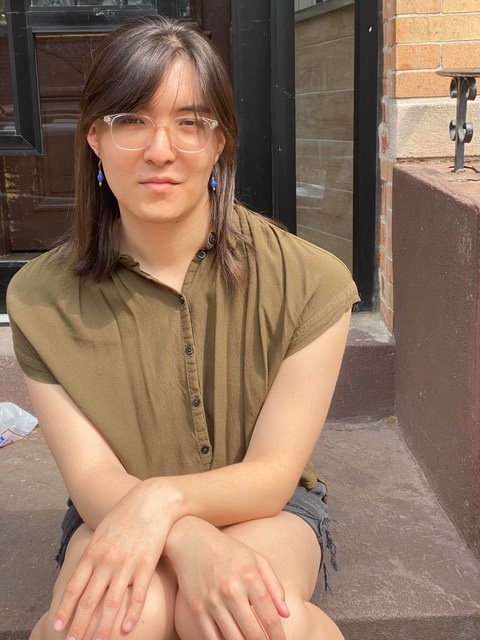 |
|
| photo: Hannah Account | |
Emily Zhou is a writer from Michigan who lives in New York City. Her first book, Girlfriends (LittlePuss Press, October 17, 2023), is a collection of seven short stories about Gen Z queer life.
Handsell readers your book in 25 words or less:
Introspective stories about aimless trans women, aged 19-25, who are all having some sort of inarticulate, poorly managed crisis. Quiet with a few loud moments.
On your nightstand now:
I'm about halfway through Robert Caro's biography of Robert Moses, The Power Broker. I expected it to be about urban planning, a subject I've recently become fascinated by, but Moses's oversights are easy to see in retrospect and were obvious even at the time--building highways through cities is bad, etc. It's more about how power works in New York City municipal politics, and how good Robert Moses was at holding on to it for a long time. I might not finish it, but I tend to be stubborn about finishing books, even long ones.
When I'm bored with Caro and Moses, I rip through novels by Ivy Compton-Burnett, an English modernist who wrote almost entirely in dialogue. She's inspiring me to do more with less, even if she would be a difficult author to emulate directly. My favorite one so far is Pastors and Masters, which is a lot more fun than its title suggests.
Favorite book when you were a child:
As depressing as this is in retrospect, I loved the Harry Potter series when I was very young, and I generally read a lot of other high fantasy stuff that I mostly don't remember at all. The book that made me interested in literature was probably Dostoevsky's Crime and Punishment, which I read in ninth grade and haven't revisited since.
Your top five authors:
In no particular order:
Henry Green. His novels, which I read one after the other in a rapturous blitz last year, totally decentered my way of thinking about fiction in ways I'm still thinking through. Back and Doting are two of the funniest books I've ever read.
Sarah Schulman. I find her work tremendously inspiring in its clarity.
Patricia Lockwood. I haven't read all of her books, but I have canceled plans to read her essays when a new one comes out.
Elif Batuman. It's hard to think of a novel that captures better what it's like to be a confused, curious young person than The Idiot.
Ben Lerner. I generally don't read neurotic-male-intellectual novels all that much unless they're really good, and Ben Lerner's novels are really good.
Book you've faked reading:
Anna Karenina. I want to get to it someday, but I find Tolstoy daunting. I've read a lot of George Eliot, so it isn't just about the period or the length. Part of it is that I'm indecisive about which translation to read. People have alarmingly strong opinions about this, and it's a long book. That said, my girlfriend came home the other day with the Pevear/Volokhonsky, so I guess that'll be the one--eventually.
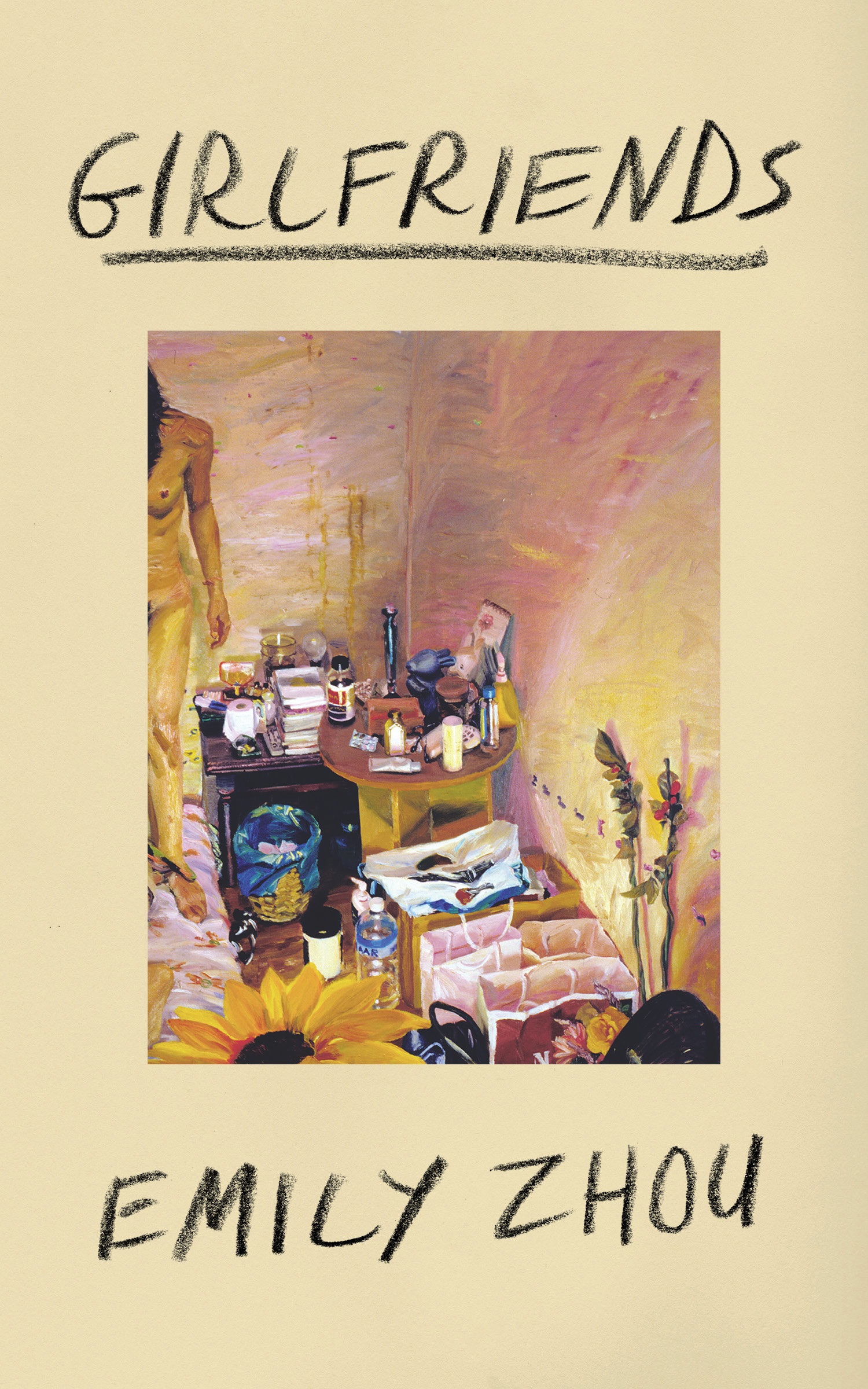 Book you're an evangelist for:
Book you're an evangelist for:
When I lived in Michigan, I talked nearly every trans woman I met into reading Imogen Binnie's Nevada, which at that time was out of print. That book was talismanic to the trans micro-generation immediately preceding mine (especially to a certain sort of white, overeducated trans lesbian), and--believer in literature that I was--I was dismayed that my younger peers weren't reading it. I lent out my copy to maybe six or seven people and encouraged them to write in the margins, and it's now a palimpsest of annotations in different colors.
Book you've bought for the cover:
Andrew Martin's Early Work, which has a Balthus painting on it and a very nice font. I've since read it three times, so I'm glad the book designer did such a good job.
Book you hid from your parents:
When I was 10, I hid my mom's copy of Charles Baxter's The Feast of Love in my locker at school and then, when my mom found it was missing, I had my friend Will hide it in his. I have my own copy now, and it's a book I'm still fond of. It's about existential loneliness and how we try to salve it with love, and it's the best Ann Arbor novel, but it also happens to open with a young couple breaking into Michigan Stadium at night and having sex on the 50-yard line. (Baxter writes "making love," which gives you an idea of what kind of book it is.) The school administrator who made Will and I fess up seemed bemused that this was what I was clandestinely reading, and I was hugely embarrassed--not because the book titillated me, but because all the adults around me thought I was. I was fascinated by it because the book seemed like a window into an adult way of looking at the world that was still comprehensible to my 10-year-old self. Sex was a part of that, but it wasn't the whole picture--but no one else understood that, and it's impossible to explain anything to an adult when you're 10.
Book that changed your life:
Torrey Peters's Detransition, Baby made me want to move to New York, which I did in 2021 with very little preparation or planning. This is, in retrospect, extremely naive and borders on delusional, but things worked out mostly fine for me, even if the New York depicted in that book had been totally displaced by the time I hopped off the train.
Favorite line from a book:
"The betrayer is always the debtor; at best, he can only work out in remorse his deficit of love, until remorse itself becomes love's humble, shamefaced proxy." That's from Mary McCarthy's The Company She Keeps.
Five books you'll never part with:
Sybil Lamb's I've Got a Time Bomb. This, to me, is the ultimate trans novel. Someone should get it back in print.
Elizabeth Hardwick's Sleepless Nights. This book terribly frustrated me the first time I read it (I wrote in my diary at the time that she "treats humans like malfunctioning automatons"), but it's a book that's deepened with each rereading.
Mary Ruefle's Madness, Rack, and Honey. At one time, it seemed like everyone I knew in the Ann Arbor musical/literary community had read this book at some point, or was recommending it to someone else. There's a good reason they were--it's great and undiminished by time and many rereadings.
Joan Murray's Drafts, Fragments and Poems. Murray is criminally underrated, probably because she died at age 24 without having published much. I think she's a visionary in the vein of Emily Dickinson and Laura Riding, and I hope more of her work gets published someday.
Susan Sontag's diaries (which are two volumes, but I'm counting it as one). A lot of young, bookish women who need a role model for their frustrated sense of seriousness have fallen under the spell of these diaries, and I'm no exception. They led me to so much else, and they're just so fun to read, even if I've outgrown emulating her.
Book you most want to read again for the first time:
Adam Ehrlich Sachs's The Organs of Sense, a satire of Enlightenment philosophy and science, repeatedly made me laugh so hard I cried the first time I read it. It's still a pleasure to reread, but I sometimes wonder if any other book is going to make me laugh like that.
Book Candy
Book Candy
A researcher has "uncovered a trove of stories and poems he believes to have been written under a pseudonym" by Louisa May Alcott, the Guardian reported.
---
Marc Chagall's lithographs for Homer's Odyssey sold for $75,600, Fine Books & Collections magazine reported.
---
CrimeReads checked out "six great mystery novels set in hotels."
---
Hibernaculum, for example. Merriam-Webster looked up some "useful and obscure words for autumn."
Rediscover
Rediscover: Natalie Zemon Davis
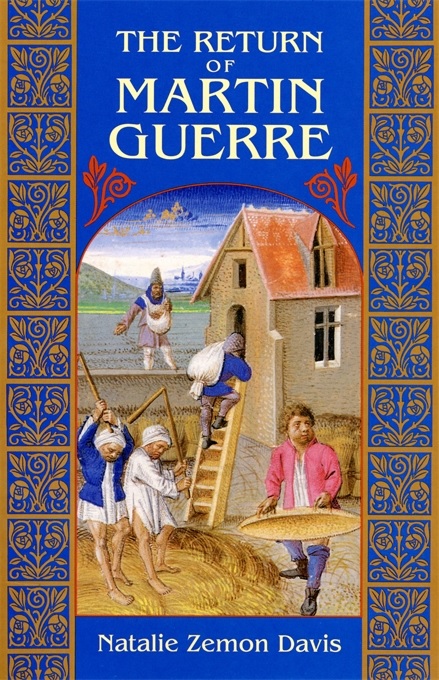 Natalie Zemon Davis, a social and cultural historian "whose imaginative and deeply researched investigations of the lives of marginalized figures--peasants, long-forgotten women, border crossers of all sorts--profoundly influenced the discipline," died October 21 at age 94, the New York Times reported. Drawing on anthropology and literary criticism, as well as archival digging, Davis "both represented and inspired an emerging approach to history in the second half of the 20th century, often by filling in gaps in the historical record with informed speculations based on deep immersion in the period under study."
Natalie Zemon Davis, a social and cultural historian "whose imaginative and deeply researched investigations of the lives of marginalized figures--peasants, long-forgotten women, border crossers of all sorts--profoundly influenced the discipline," died October 21 at age 94, the New York Times reported. Drawing on anthropology and literary criticism, as well as archival digging, Davis "both represented and inspired an emerging approach to history in the second half of the 20th century, often by filling in gaps in the historical record with informed speculations based on deep immersion in the period under study."
Her best-known book was The Return of Martin Guerre (1983), based on the tale of a 16th-century peasant in Languedoc, France, who for several years successfully impersonated a man from a rural village who had abandoned his family. The Times noted that the book was "a kind of follow-up to a 1982 movie," Le Retour de Martin Guerre, and Davis, who had published a groundbreaking essay collection, Society and Culture in Early Modern France (1975), was the historical adviser to director Daniel Vigne and the screenwriter Jean-Claude Carrière while they were working on the film.
Upon its release, Davis realized the movie could not convey the nuances of the story and so decided to give "this arresting tale," as she put it in a preface to the book, "its first full-scale historical treatment, using every scrap of paper left me by the past."
Her next book, Fiction in the Archives: Pardon Tales and Their Tellers in Sixteenth-Century France (1987), explored stories that common people accused of homicide told in order to secure a pardon from the king. Other books include Women on the Margins: Three Seventeenth-Century Lives (1995), The Gift in Sixteenth-Century France (2000), Slaves on Screen (2000), and Trickster Travels: A Sixteenth-Century Muslim Between Worlds (2006).
During a long teaching career, Davis eventually moved from Toronto to Princeton in 1978 and stayed for 18 years, succeeding Lawrence Stone as director of the Shelby Cullom Davis Center for Historical Studies. She retired in 1996 as the Henry Charles Lea professor of history. She had helped found women's studies programs at both Princeton and UC Berkeley. Returning to Canada, she was named a professor emerita in the University of Toronto's history department.
Davis became president of the American Historical Association in 1987, only the second woman to hold that position. She was made a Companion of the Order of Canada in 2012 and was presented with the 2012 National Humanities Medal by President Barack Obama.
In a speech to the American Council of Learned Societies, she considered how her years of study had given her confidence in the resilience and adaptability of societies: "No matter how bleak and constrained the situation, some forms of improvisation and coping take place. No matter what happens, people go on telling stories about it and bequeath them to the future." She added, "The past reminds us that change can occur." The Return of Martin Guerre is available in paperback from Harvard University Press.
Read what writers are saying about their upcoming titles


